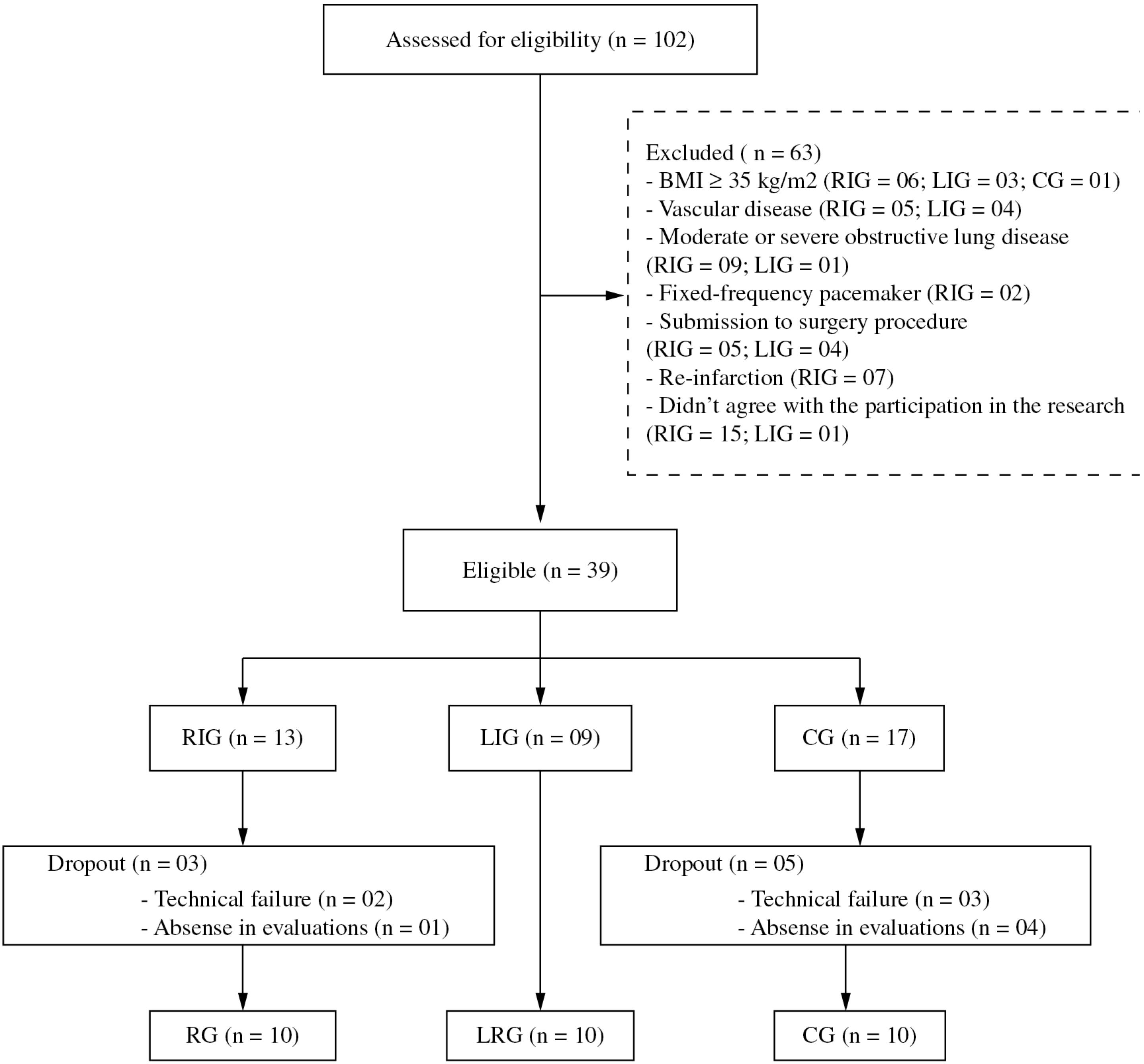Background:
Reduced respiratory muscle endurance (RME) contributes to increased dyspnea upon exertion in patients with cardiovascular disease.
Objective:
The objective was to characterize ventilatory and metabolic responses during RME tests in post-myocardial infarction patients without respiratory muscle weakness.
Method:
Twenty-nine subjects were allocated into three groups: recent myocardial infarction group (RG, n=9), less-recent myocardial infarction group (LRG, n=10), and control group (CG, n=10). They underwent two RME tests (incremental and constant pressure) with ventilatory and metabolic analyses. One-way ANOVA and repeated measures one-way ANOVA, both with Tukey post-hoc, were used between groups and within subjects, respectively.
Results:
Patients from the RG and LRG presented lower metabolic equivalent and ventilatory efficiency than the CG on the second (50± 06, 50± 5 vs. 42± 4) and third part (50± 11, 51± 10 vs. 43± 3) of the constant pressure RME test and lower metabolic equivalent during the incremental pressure RME test. Additionally, at the peak of the incremental RME test, RG patients had lower oxygen uptake than the CG.
Conclusions
: Post-myocardial infarction patients present lower ventilatory efficiency during respiratory muscle endurance tests, which appears to explain their inferior performance in these tests even in the presence of lower pressure overload and lower metabolic equivalent.
cardiac disease; physical therapy; exercise tolerance; respiratory muscles; muscle fatigue


